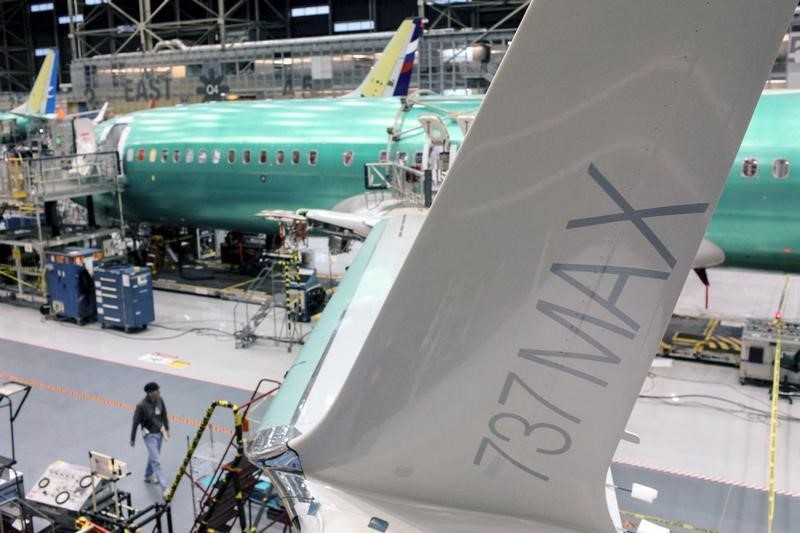Intel stock extends gains after report of possible U.S. government stake
(For a live blog on the U.S. stock market, click LIVE/ or
type LIVE/ in a news window)
* Boeing slips on suspension of 737 Max production
* Pfizer gains as FDA approves prostate cancer therapy
* November industrial production data due at 9:15 a.m. ET
* Futures: Dow dips 0.12%, S&P off 0.05%, Nasdaq flat
By Uday Sampath Kumar
Dec 17 (Reuters) - U.S. stock index futures dipped on
Tuesday, a day after Wall Street closed at all-time highs, while
Boeing was set for its fourth straight session of losses as the
planemaker said it would suspend production of its 737 MAX jet
in January.
Boeing BA.N shares fell 1.2% premarket, eyeing their
lowest open since August, as the crisis around its grounded
aircraft forced it into its biggest assembly-line halt in more
than two decades. The news soured the mood after three straight days of record
highs for U.S. stock indexes, spurred by cooling trade tensions
between the world's top two economies and upbeat economic data
from China.
The S&P 500 .SPX has gained over 27% so far this year,
rising in nine of the last 10 weeks, on expectations of a
U.S.-China trade deal, a dovish Federal Reserve, a strong
corporate earnings season and upbeat economic indicators.
An interim trade agreement was announced on Friday, but some
investors still held off on big bets amid skepticism about the
lack of details. The three index futures were trading slightly
off record levels on Tuesday.
At 7:23 a.m. ET, Dow e-minis 1YMcv1 were down 35 points,
or 0.12%, while S&P 500 e-minis EScv1 were down 1.5 points, or
0.05%. Nasdaq 100 e-minis NQcv1 were down just 1.25 points,
nearly flat.
Pfizer Inc PFE.N rose 1.1% after the U.S. Food and Drug
Administration approved the U.S. drugmaker and Astellas Pharma
Inc's 4503.T prostate cancer therapy.
Johnson & Johnson JNJ.N gained 1.3% after reports that
Morgan Stanley upgraded the stock to "overweight" from "equal
weight".
Investor attention now turns to industrial production data
for November, due at 09:15 a.m. ET, to gauge the health of the
U.S. economy, which has so far been resilient despite trade
tensions.
